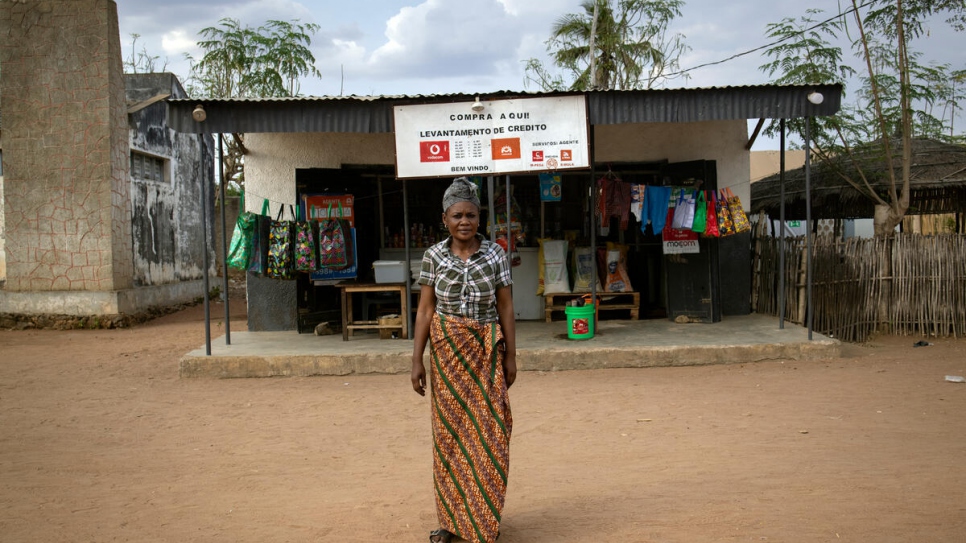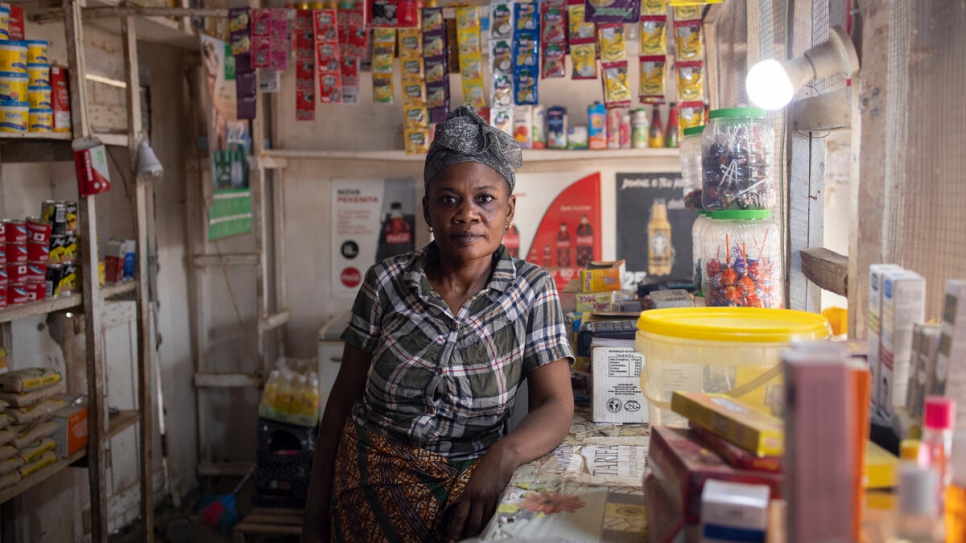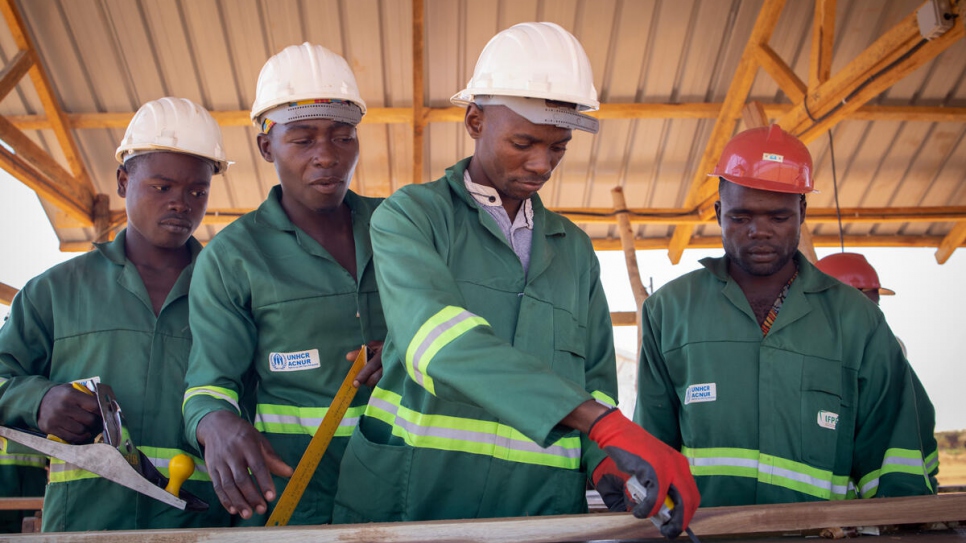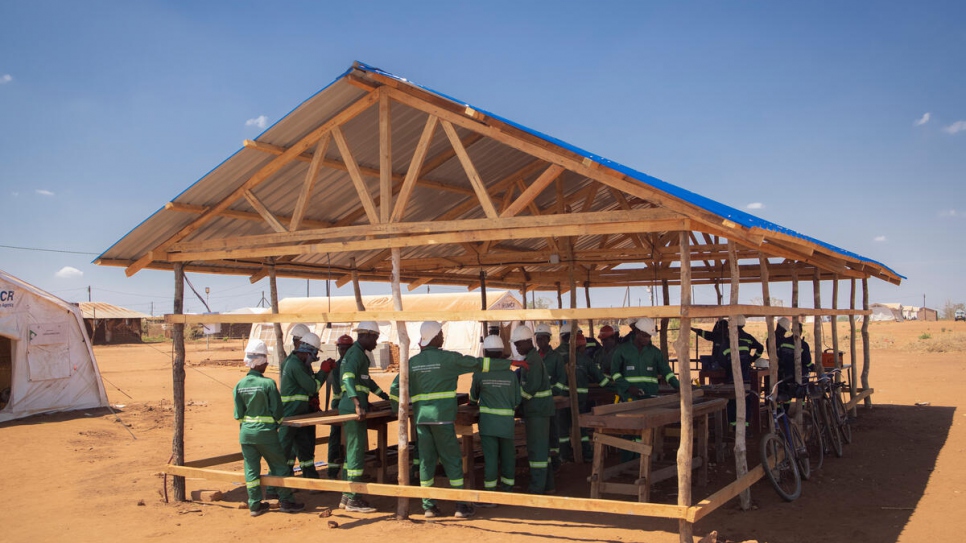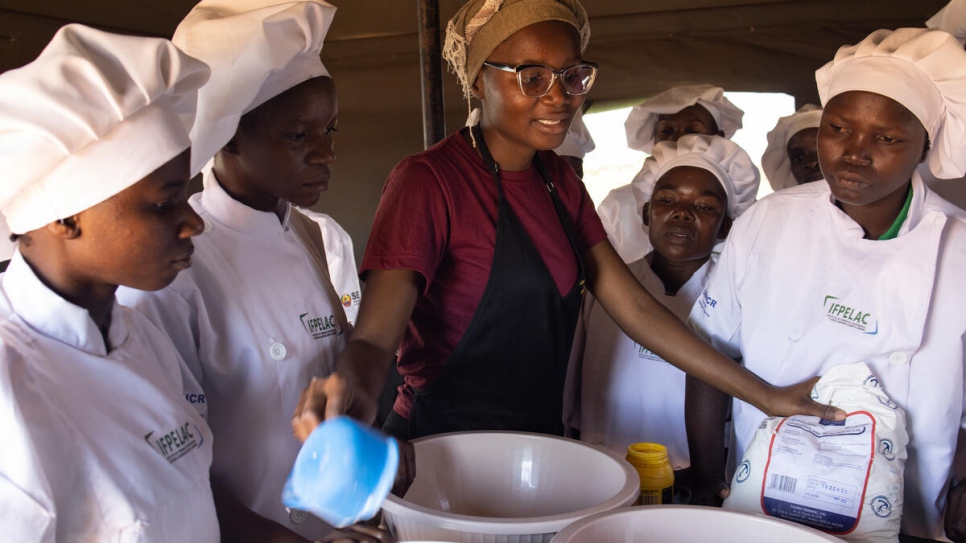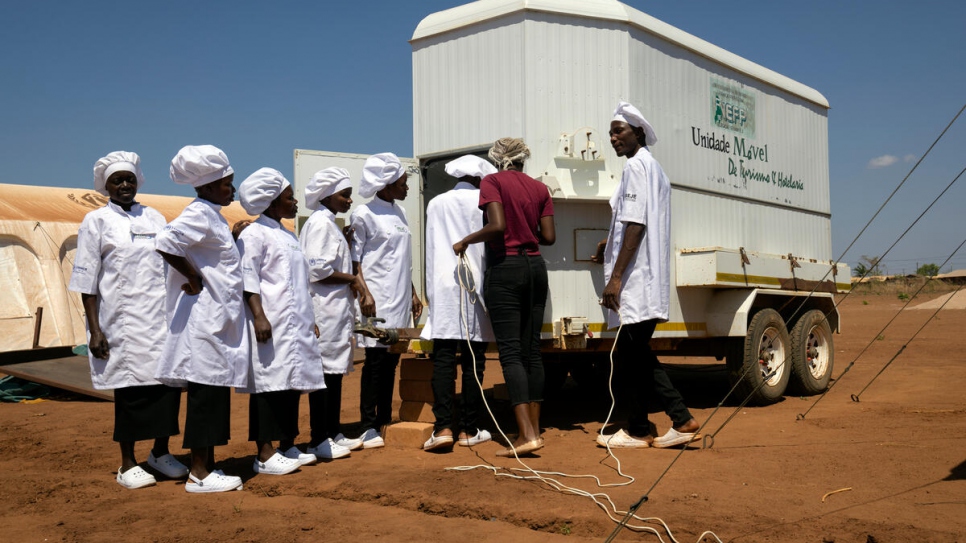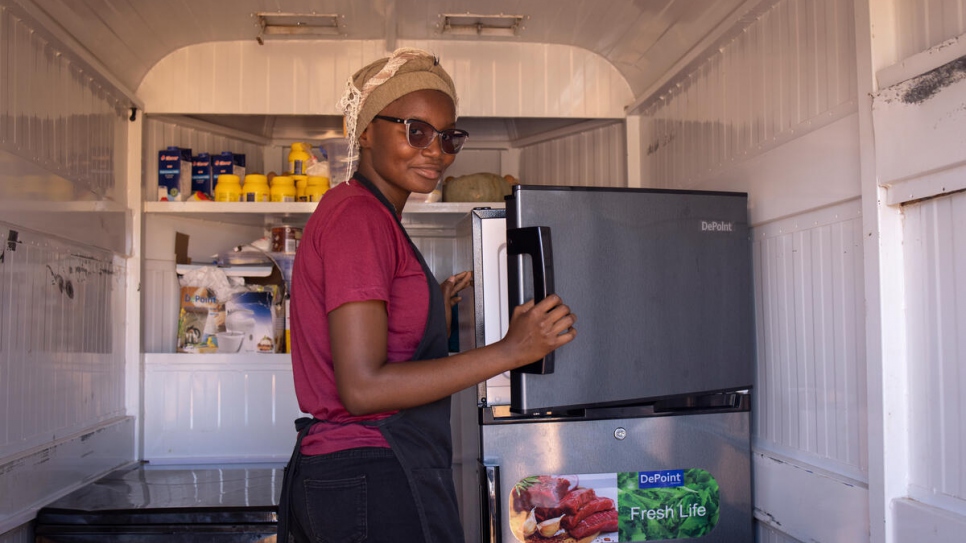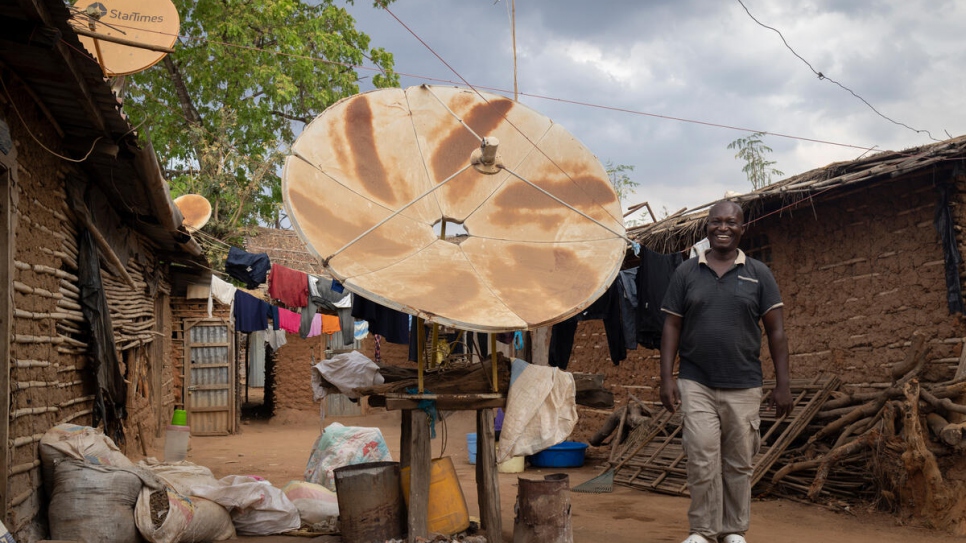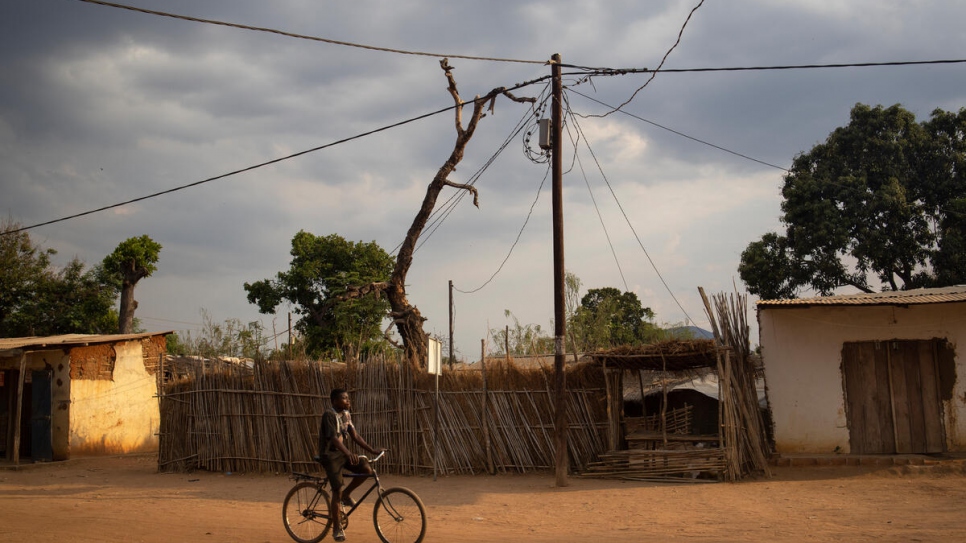Lighting up the lives of forcibly displaced people in Mozambique
UNHCR is working with development partners and the Government of Mozambique to provide electricity to displaced people living in settlements.
Charlotte Fatuma, who fled violence in the Democratic Republic of the Congo in 2016, now owns a shop in Maratane refugee settlement, Nampula Province, Mozambique.
© UNHCRHélène Caux
When Charlotte Fatuma fled conflict in the Democratic Republic of the Congo (DRC) in 2016 she never imagined one day running a successful business in a refugee settlement.
She narrowly escaped death during attacks by militia men on her village in North Kivu province.
“They killed my husband then burned my house,” Fatuma says. “I fled for my life.” The 40-year-old eventually arrived in Mozambique some months after the attack and has worked hard to build a new life there.
In 2019, local authorities began electrifying parts of the Maratane refugee settlement as well as surrounding host community neighbourhoods in the northern Nampula province where she lives alongside 9,300 other refugees. Fatuma decided this was an opportunity to start her own business, become more independent and better support her family.
"Having electricity in my shop is very important."
The following year, she and a refugee friend took the plunge and opened a shop together.
“Having electricity in my shop is very important because I sell drinks and food, especially fish, and they need to keep cold,” Fatuma says. “People in Maratane like fish very much! I buy it in Nampula town and keep it in the freezer. People also come to buy milk, sodas, juices, water. I have two fridges to stock all of those. If nothing is cold, customers will run away!”
The mother of two works long hours, from before dawn until long after dark, meaning light is as important as fridges. “Customers who come in the evening need to be able to see and choose what they want,” Fatuma says.
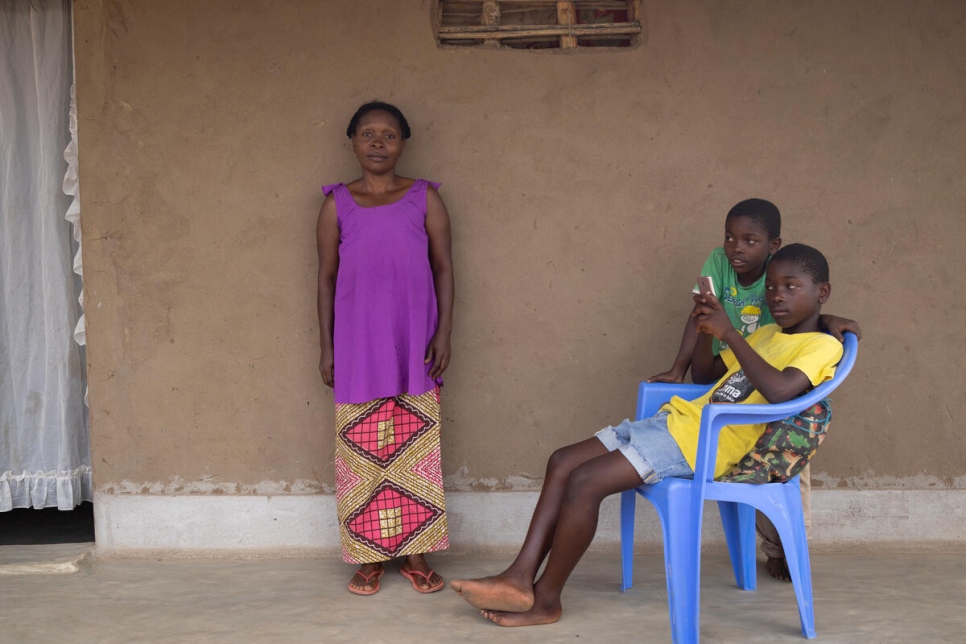
Neema Cenga, who arrived in Mozambique in 2003 after fleeing violence in DR Congo, poses with two of her eight children in front of their house in Maratane refugee settlement. © UNHCR/Hélène Caux
Neema Cenga, a single mother of eight, also from the DRC, says having electricity in her home is a blessing: “Electricity helps me light up the kitchen and our bedrooms. My children are happy because the small ones used to be afraid of the dark when we didn’t have electricity.” Electricity has been the silver lining in a dark cloud after Cenga’s previous home was destroyed by cyclone Gombe last March.
Mozambique is among the least developed countries in the world, ranking 185th out of 191 countries in the 2022 Human Development Index. Over 1 million Mozambicans are internally displaced due to violence perpetrated by non-state armed groups, mainly in the northern Cabo Delgado province, but also as a result of the devastating impact of climate change and extreme weather such as cyclones, tropical storms and floods – with Nampula being one of the provinces the most exposed to those extreme events. In addition to the internally displaced, Mozambique also hosts around 28,000 refugees.
In Nampula province, UNHCR is partnering with the African Development Bank (AfDB), the World Bank, and the Government of Mozambique, to provide electricity to refugees and internally displaced people as part of the nationwide Energy for All project.
The partnership demonstrates how cooperation between humanitarian and development actors can deliver tangible solutions for forcibly displaced people and foster their inclusion in the communities hosting them. Development cooperation is the focus of the 2022 High Commissioner’s Dialogue on Protection Challenges, a two-day policy discussion held in Geneva on 7 and 8 December.
The electrification of Corrane settlement, home to 7,200 internally displaced people (IDPs), began last year. “Corrane IDP site is a good example of a place where you see humanitarian and development actors coming together,” says Irene Omondi, UNHCR Head of Office in Nampula. “Having proper lighting in an IDP site or a refugee settlement provides better security for women and girls at night.”
In Corrane, 1,451 homes are connected, while in Maratane, the figure is 70 so far. In both areas a focus will also be placed on connecting homes in surrounding communities, supporting integration by improving living standards for both people forced to flee and the communities that host them. And plans are underway to eventually connect more people.
“We are expecting to connect 49,000 households in the Nampula and Zambezia provinces as part of The Energy for All project, mainly in areas that have been identified with low electrification rates, including where refugees and IDPs are staying” says Cesar Augusto Mba Abogo, Country Manager for the AfDB in Mozambique. “The programme will be implemented over a period of four years.”
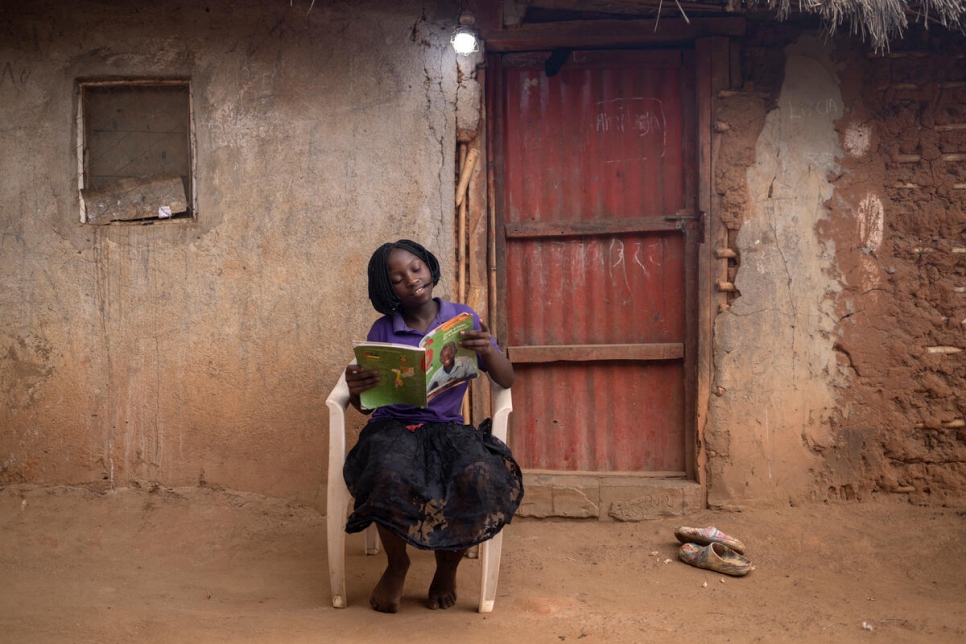
Lucie Songa, 11, reads a schoolbook by electric light at the end of the day outside her family's home in Maratane refugee settlement. © UNHCR/Hélène Caux
Electricity improves daily life—children can do their homework, businesses like Fatuma’s can thrive, and phones can be charged, helping people stay in touch with family and friends. It also supports education and training. UNHCR and the national educational centre Instituto De Formação Professional E Estudos Laborais Alberto Cassimo (IFPELAC), provide vocational workshops in Corrane for IDPs and local communities. The provision of electricity means they can learn to use electric saws and other construction tools, receive training as electricians, and take cookery classes using electric mixers and ovens.
“We are trying to provide them with professional skills so that they can find a job later on, or open their own business,” says Helena Marcia Cesarito, from IFPELAC.
“For people who have escaped the worst in Cabo Delgado province or fled from other countries, who have been traumatized by violence, and have lost everything, having a roof over their head, a safe place to stay and access to electricity, is crucial,” says Samuel Chakwera, UNHCR Representative in Mozambique. “Strong partnerships with development actors and the government is key for UNHCR to better the lives of the forcibly displaced in Mozambique”

